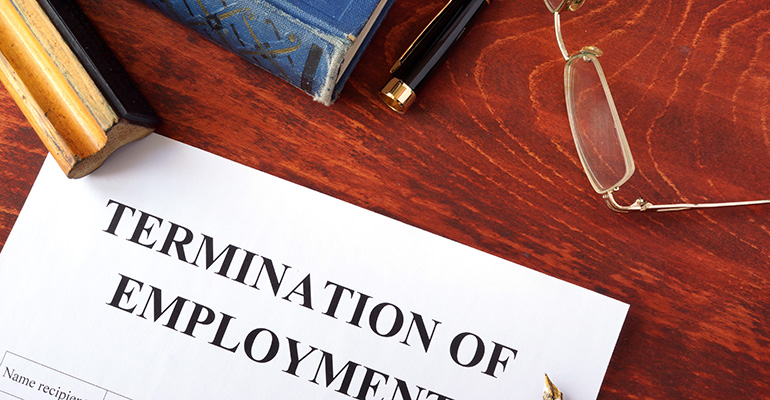
Top Labor Law Violations in Florida – and How to Report Them
If your employer committed labor law violations, would you recognize it?
These violations are much more common than many people think. Employee rights stretch far and wide, with strong protections against many types of actions that employers may take. From issues that directly affect your paycheck to varying civil rights violations, it is vital to be aware of the types of violations that commonly occur and how to report labor law violations.
Common Labor Law Violations in Florida
Florida workers face multiple types of labor law violations, resulting in negative consequences for themselves and their families. Even with strict legislation in place, employers make decisions and take actions to benefit their business (or even themselves) at the expense of their employees. Here are some common labor law violations in Florida:
- Not paying you for compensable time – this includes any hours worked, such as attending meetings, checking inventory, working through your lunch breaks and mandated breaks, working after your official shift, cleaning, or getting dressed in PPE necessary for work or overtime pay.
- Not paying your earned bonuses or commissions – if bonuses and/or commissions are part of your terms of employment or employment contract, and you earn them according to the terms, you are entitled to those bonuses or commissions.
- Not paying you at least minimum wage – Florida’s minimum wage is higher than the federal minimum wage at $7.25. As of September 30, 2021, the minimum wage in Florida is $10.00 ($6.98 for tipped employees). Workers in Florida are entitled to the state minimum wage.
- Sexual harassment – Florida civil rights laws and Title VII of the Civil Rights Act protect Florida employees from sexual harassment.
- Retaliation against whistleblowers – when workers report illegal activity, unsafe working conditions, or other actions such as testifying to government agencies, retaliation is prohibited (such as employee termination); private and public sector protections are defined separately.
These are examples of some of the common employment law violations in Florida. Multiple state and federal labor laws protect workers across Florida.
State and Federal Labor Law Violations
Employers must obey state and federal labor laws. They risk financial penalties, legal costs, unfavorable legal rulings, and even reputational problems if they do not. Even with these risks, employers still violate employee rights.
Employment law attorneys represent workers who have been the subject of state and federal labor law violations, fighting hard for their clients to hold companies responsible for their actions, including violations of the following legislation:
- Florida Civil Rights Act (FCRA) of 1992 – state law protecting individuals against discrimination based on race, color, religion, sex, pregnancy, national origin, age, disability, marital status, or sexual orientation.
- Florida Whistleblower Act – state Statute 448.102 protects private-sector employees who object to an activity, policy, or practice that violates a regulation, rule, or law or report or threaten to report their employers for their violations. State Statute 112.3187protects the public sector – employees must qualify as a whistleblower and follow strict reporting requirements and timelines.
- Title VII of the Civil Rights Act– federal law prohibiting harassment or unequal treatment based on race, color, sex, religion, or national origin in the workplace or as part of the hiring process.
- Fair Labor and Standards Act (FLSA) – federal law enforced by the Department of Labor’s Wage and Hour Division; establishes minimum wage, overtime pay, recordkeeping, and youth employment standards affecting employees in the private sector and in Federal, State, and local governments.
- The Americans with Disabilities Act (ADA) of 1990 – federal civil rights law prohibits discrimination based on disability.
- The Age Discrimination in Employment Act (ADEA) of 1967 – a federal law that prohibits employment discrimination against persons 40 years of age or older.
If you believe your employee rights have been violated, consult an attorney specializing in labor law violations. They can advise you on the appropriate legal avenues and legislation best suited for your particular situation, whether it be state or federal law.
When filing a case against an employer, the violation(s) must be reported.
How to Report Labor Law Violations
Do you know how to report labor law violations? The reporting agency will depend on the type of labor law violation. For example, if your employer has neglected to pay overtime that you have lawfully worked, a complaint can be filed with the Wage and Hour Division (WHD) of the Department of Labor, which would include:
- personal information,
- employer information,
- payment information,
- dates and descriptions of violations, and
- job title and description
If you believe you have been discriminated against at work due to your race, color, religion, sex (including pregnancy, gender identity, and sexual orientation), national origin, age (40 or older), disability, or genetic information, you can file a Charge of Discrimination with the U.S. Equal Employment Opportunity Commission (EEOC) or with the Florida Commission on Human Relations, depending on the circumstances. Detailed, relevant information should be included in the report, including the date(s), individual(s) involved, any documentary evidence, and details of what occurred.
Employees should report labor law violations because they deserve justice. Unfortunately, there are times employers will retaliate against an employee if they do report them.
What Should You Do If You Are Fired for Reporting Labor Law Violations?
If you have been fired for reporting labor law violations, know that state and federal laws exist to hold your employer accountable. Employment law attorneys are experts in employee rights and understand what it takes to get justice.
Consult with an attorney regarding the details of your situation. You may be entitled to significant compensation and other resolutions to the case. Even if your former employer threatens or harasses you not to make a case against them, know it is your right to do so. Powerful, bullying employers should be held accountable for labor law violations that affect you, your career, and your family’s future.
Wenzel Fenton Cabassa, P.A. has the experience you need if you have been fired for reporting labor law violations. We have worked with employees across industries, helping thousands of people throughout the state get justice.
Don’t do this alone.
Please Note: At the time this article was written, the information contained within it was current based on the prevailing law at the time. Laws and precedents are subject to change, so this information may not be up to date. Always speak with a law firm regarding any legal situation to get the most current information available.








